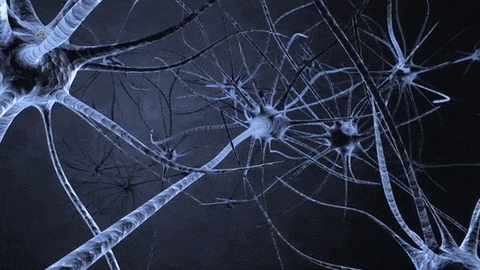Non-Sugar Sweeteners A No-Go, Hope For Peanut Allergies, Buccal Fat Removal Fad, Possible New Drug For Alzheimer's, Why We Crave Sugar.
The Full Panel meets your TLDR (Too Long; Didn’t Read) needs by delivering the latest medicine & health news in a nutshell. 🥜
It's official- as per the World Health Organization: non-sugar sweeteners should not be used for weight management.

Gist: The World Health Organization (WHO) advises against using non-sugar sweeteners (NSS) for body weight control or reducing the risk of noncommunicable diseases.
Nitty-Gritty: Based on a systematic review, the WHO found no evidence of long-term benefits in body fat reduction from NSS use. The study also suggested potential harmful effects, including an increased risk of type 2 diabetes, cardiovascular diseases, and adult mortality rates. The WHO urges the public to consider alternative means of reducing sugar intake, emphasizing that NSS are not essential dietary components and possess no nutritional value. Common NSS include aspartame, saccharin, and stevia. This recommendation does not extend to personal care and hygiene products containing NSS or to low-calorie sugars and sugar alcohols (i.e. polyols), which are sugars or sugar derivatives containing calories and are therefore not considered NSS.
Big Picture: Given the complex nature of NSS usage and related health outcomes, the recommendation is conditional, indicating the need for tailored policy discussions in different countries. This guideline is part of a broader WHO initiative promoting healthy dietary habits.
Original source: here.
Hope on the horizon for kids with peanut allergies 🥜

The Editor's tangent: I was on an airplane last week. I had bought a bag of candied nuts to eat during my 6 hour flight. Unfortunately, the person behind me had an airborne allergy to nuts (?!)😭 and, therefore, all surrounding people could not eat nor open containers of nuts. I was very hungry that whole flight– To distract from my hunger, I decided to go on an Google tangent about treatments for such things because, what do you do without peanut butter?!--- Turns out, there has actually been new developments in treatment for these poor non-nut eating souls😀-- At least for the children. Read on below.
Gist: A global phase 3 clinical trial has found that a year-long immunotherapy via a skin patch safely desensitizes toddlers with peanut allergy, reducing the risk of severe allergic reactions from unintentional exposure.
Nitty-Gritty: This trial, which was funded by DBV Technologies, involved children aged 1-3 and was published in the New England Journal of Medicine. The study was conducted at various locations, including Ann & Robert H. Lurie Children's Hospital of Chicago. After treatment, children who previously reacted to small amounts of peanut could tolerate between one to four peanuts. This result ensures better protection for these children from inadvertent peanut exposure.
Big Picture: Despite peanut allergies affecting roughly 2% of children in Western countries, no approved treatments for peanut-allergic children under four years old existed before this study. If treatments like this prove to be effective, it could be lifesaving. It is very hard to control every environment we are in and what other people do, therefore, being able to dampen or resolve an allergy can be very beneficial.
Original source: here.
Move over Botox and fillers, buccal fat removal is the new thing!

Gist: Buccal fat removal, a cosmetic surgery procedure that removes fat from the cheeks, has been trending on social media after several celebrities were rumoured to have undergone the procedure. The procedure can create a more sculpted, defined cheekbone appearance, but has sparked controversy due to potential long-term effects such as prematurely aging the face.
Nitty-Gritty: While some praise the procedure for enhancing self-esteem, others warn against the removal's irreversible nature. Last year, model Chrissy Teigen shared she had the procedure, causing a surge in interest. Yet experts like New York-based plastic surgeon Darren Smith advise caution, highlighting the need for responsible decision-making and understanding the pros and cons before undergoing surgery.
Big Picture: Critics argue that the high-cheekbone aesthetic promoted by buccal fat removal reinforces unattainable beauty standards. Surgeons also highlight that the procedure should be performed precisely and artistically to avoid prematurely aging the face. To each their own, but be sure to do your research and consult the right health care professionals when choosing to undergo any procedure--cosmetic or otherwise!
Original source: here.
New Drug Submission: lecanemab (LEQEMBI™) to treat early Alzheimer's disease

Gist: Eisai Co. and Biogen Inc. announced that Health Canada has accepted a New Drug Submission (NDS) for lecanemab (LEQEMBI™), an anti-amyloid beta (Aβ) protofibril antibody (i.e., it's a medication), for treating early Alzheimer's disease with confirmed amyloid pathology in the brain.
Nitty-Gritty: The NDS is based on Phase IIb and Phase III (Clarity AD study) clinical trials, which showed lecanemab slowed disease progression by reducing toxic Aβ aggregates. The drug was launched in the U.S. in January 2023 after accelerated approval based on Phase II data. Continuation of approval depends on the confirmation of lecanemab's clinical benefit in a confirmatory trial, which the FDA has stated can be met by the Clarity AD study.
Big Picture: If approved, this could be very beneficial in the treatment of Alzheimer's. It's also noteworthy that lecanemab has already received accelerated approval in the U.S. in January 2023, though its continued approval hinges on further confirmatory trials. Therefore, if these trials confirm its effectiveness, lecanemab could represent a major development in the treatment of Alzheimer's disease.
Original source: here.
Food for Thought: Dr. Charles Zuker and Dr. Andrew Huberman discuss why we crave sugar. Time stamp 10:19 talks about why non-sugar sweeteners fail to satiate our craving for sugar.
Run time 14:29
Interested in previous newsletters or other articles we’ve published? Check them out here at: thefullpanel.com
Got a question for us? Suggestions for content you’d like to see? Feedback? E-mail us at: hello@mail.thefullpanel.com
